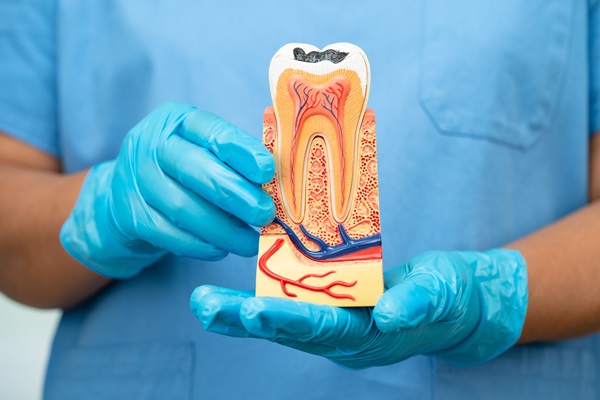What to Ask an Implant-Supported Dentures Dentist Before the Procedure

As the popularity of implant-supported dentures continues to increase, an increasing number of dental practices are offering them to their patients. Implant-supported dentures are a distinct prosthetic since they combine implants and dentures to create an excellent solution for those who have lost most of their real teeth.
Commonly asked questions about implant-supported dentures
If you are like most people who find themselves considering implants, you probably have a list of questions about these prosthetics and what getting them entails. This article will explore some of the commonly asked questions about these devices:
1. Is it the right option for you?
Patients need to have a lot of healthy jawbone tissue before implants can be installed. This jawbone tissue is what holds the implant in place after installation. The problem is, jawbone tissue typically deteriorates when a person has lost a tooth and its roots. Missing teeth replacement options like bridges and implants do not address bone tissue loss, so those who have used either of these for a while might not have enough bone tissue for implants.
A patient's jawbone tissue can be strengthened by performing bone grafts. However, this may take up to three months to recover from.
2. Do implants need to be replaced often?
Absolutely not! Implants are designed to be long-lasting solutions, and they can last an entire lifetime with good oral hygiene. The crown attached to the implant has a lifespan of over 20 years.
3. Do implant-supported dentures require special cleaning?
No. Implants-supported dentures do not need any special maintenance if they are permanently being held in place by implants. The wearer simply needs to brush and floss as advised by their dentist. This is a big difference from traditional dentures which need to be cleaned and soaked in denture solution daily.
4. Are implants good for your health?
Implants serve the same function as a natural tooth's roots. They prevent jawbone tissue from breaking down by keeping them stimulated. This sends a signal that the bone tissue is still useful, so the body maintains it.
5. How comfortable are implant-supported dentures?
The implants used are firmly attached to the patient's jawbone, so the dentures are tightly held in place. Traditional dentures are anchored by suction forces and adhesives only, which often leads to the device slipping in the wearer's mouth. That can make simple tasks like eating or talking a lot harder.
Traditional dentures moving around a person's mouth can also lead to sores and cuts.
6. What type of implant will be used?
Implants are typically made out of titanium, but they can also be made out of materials like zirconium. The dentist will evaluate the patient and determine what type of implants would be better suited for them. The patient also gets a say when it comes to figuring out what kind of implants are used.
Implant-supported dentures are the better alternative
Implant-supported dentures are an excellent solution for those who have lost most of their teeth. It is a solution that allows them to forget most of their teeth are artificial. Visit our clinic or call to learn more about these prosthetics.
Request an appointment here: https://beautifulmouth.com or call Beautiful Smile, LLC at (856) 346-8900 for an appointment in our Gibbsboro office.
Check out what others are saying about our services on Yelp: Read our Yelp reviews.
Recent Posts
A set of implant supported dentures can restore a smile by creating a permanent set of artificial teeth. The first benefit of permanent or fixed dentures is that they function like natural teeth, which means no slippage. The second upside of implant-supported dentures is their contribution to the health of the jaw.A missing tooth leaves…
Looking into your denture choices? implant supported dentures are a popular choice due to the many advantages that they offer. Those who choose this denture option need to first have a certain number of dental implants placed in their jawbone, making this a multi-month procedure.Considering getting implant supported dentures but want to learn more about…
You may have to send your dentures to a laboratory during a denture repair depending on the type and severity of the concern that is being addressed. This review discusses when a denture repair requires a laboratory’s assistance in ensuring the quality of the dentures at the completion of the denture repair.A minor denture repair…
A denture rebase is one of the repairs that denture users may need at some point. Dentures have spans of up to five or seven years. However, for it to last that long, you may encounter repairs along the way. The dentures may have cracked or the base might be a weak plastic. Then they…


